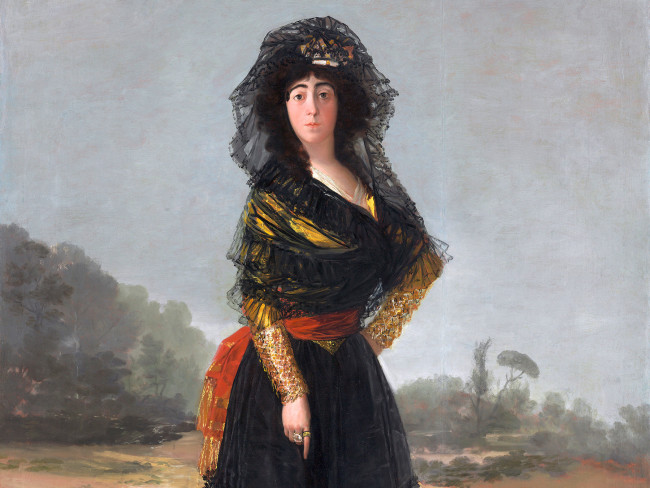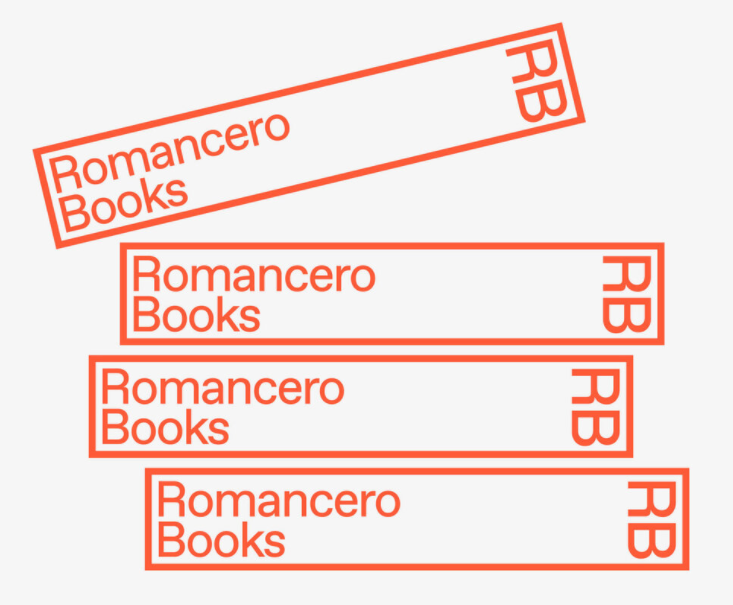Rincón bibliográfico abril 2023- Federico García Lorca
Federico García Lorca es el poeta español más más conocido y estudiado en el Reino Unido y, en general, en el mundo anglosajón. Por tal motivo, la biblioteca del Instituto Cervantes de Londres posee más de doscientos materiales sobre él o escritos por él. Para el rincón bibliográfico de este mes hemos realizado una selección de libros y otros materiales, fundamentalmente en inglés sobre su vida y su obra.
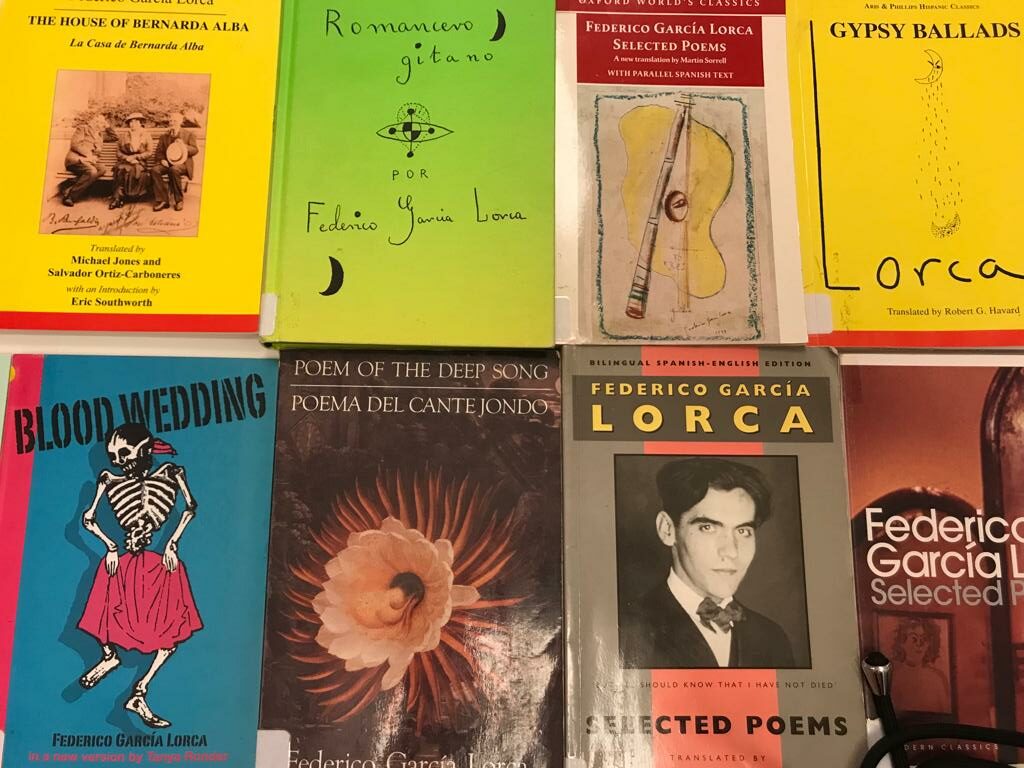
Interest in Instituto Cervantes Teaching Accreditation Diploma (DADIC) continues to grow given increasing demand for learning Spanish in the United Kingdom
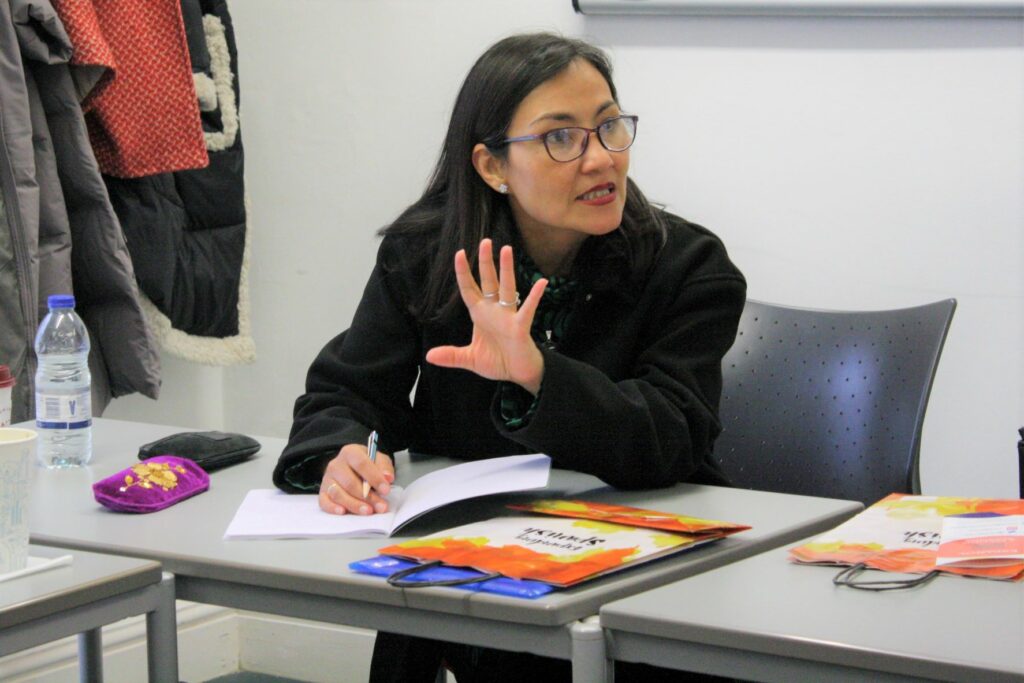
Instituto Cervantes London is training future teachers of Spanish as a foreign language through its preparation course for the Instituto Cervantes Teaching Accreditation Diploma (DADIC-A, autonomous level) within the context of an increasing demand for learning Spanish in the United Kingdom. A new group of students is about to complete the second module during the course’s fourth edition.
“The preparation course for the DADIC- A enables participants to teach Spanish communicatively, efficiently and professionally”, says Antonio Vañó Aymat, head of studies at Instituto Cervantes London. “Training new Spanish teachers in the United Kingdom is important to us. Spanish is one of the most studied languages in the country, and the demand for experienced qualified teachers of this language continues to grow”, adds Vañó Aymat.
“Training new teachers allows Instituto Cervantes to play a part in how Spanish is taught in the UK. We ensure high-quality teaching through a unique student-centred, action-oriented methodology. It combines theory and practice and is based on action, interaction and reflection to broaden future teachers’ skills and equip them with the tools needed to analyse and develop their professional practices”, the head of studies explains.
The course is aimed at those with no previous experience or training in teaching Spanish as a foreign language. A pleasantly surprising aspect of the fourth edition is participants’ level of education. They hold degrees in various fields: some have completed diplomas, Master’s degrees and PhDs in Education, Communications and Hispanic Studies, while others come from what are usually considered unrelated backgrounds such as engineering and business management.
“The level of education held shows that the high-quality professional training offered by Instituto Cervantes London attracts exceptional students seeking to improve their skills in teaching Spanish as a foreign language”, emphasises Vañó Aymat. Moreover, participants’ great interest and will to learn reflects “their commitment to teaching the language”. Students are from all over the Spanish-speaking world, which enriches and diversifies their learning experience.
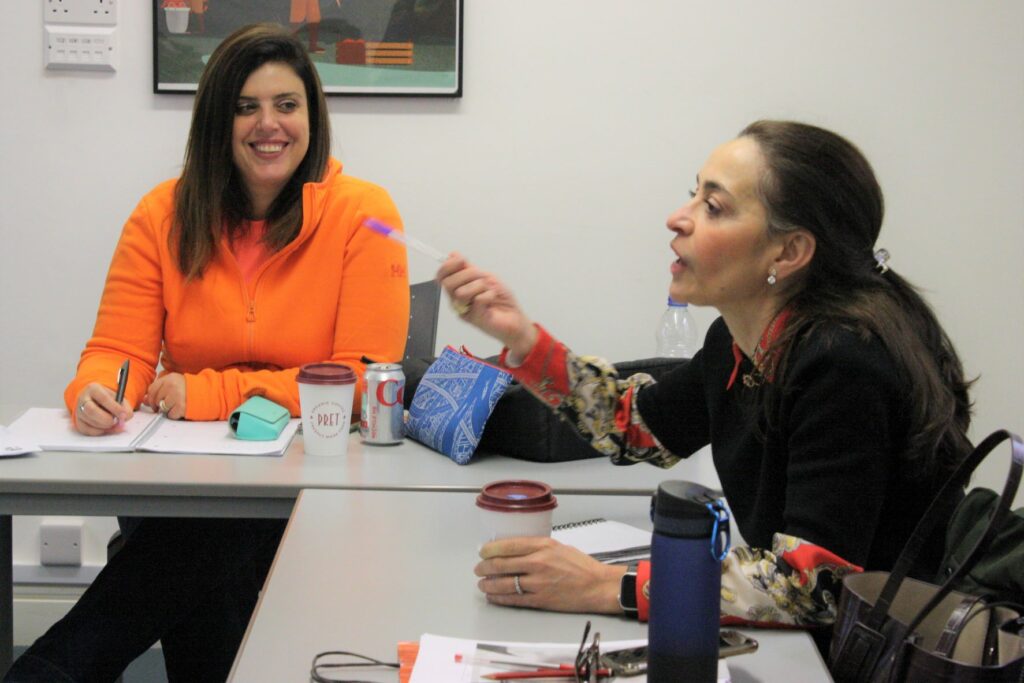
Increasing demand for learning Spanish in the United Kingdom
Venezuelan student Gitanjali Wolfermann, who has been living in London for just over five years, says, “I was pleasantly surprised by the increasing demand for learning Spanish in the UK, and especially by the desire to learn about Latin American culture. Here in London, I am far from home, but not my culture, which is inherently linked to my mother tongue, the language I think and feel in.”
In Wolfermann’s case, sharing her love for her language and culture is what inspired her to teach Spanish. “I chose the course because of its extensive curriculum and highly qualified, experienced teachers. I was also drawn to the combination of theory and practice”, she said.
Wolfermann also highlights that she and her fellow participants have been exposed to various levels, from beginners’ through to advanced. “This is not available everywhere, as a lot of the courses are online”, she notes. Another factor that persuaded her was the qualification achieved, which is certified by Instituto Cervantes.
“Many people think that being a native speaker of a language automatically means you can teach it. This is far from true. A teacher needs many tools and techniques to help students progress. It is no good teaching them isolated grammar rules or making them repeat meaningless phrases; it helps to build connections to better their understanding of the language and its rich culture”, Wolfermann highlights.
A very valuable experience
Jesica Paz, who is from Chile, wishes to become a Spanish teacher to work with students from diverse backgrounds, cultures and age groups. She wants to share her language and culture with them while also learning about theirs. She says, “I wanted to take the course to acquire new teaching tools and models that will help me improve the planning, development and analysis of the classes I give.”
In Paz’s view, taking the preparation course for the DADIC-A has been a “very valuable experience on both a personal and professional level”, as she has learnt new things that leave her better prepared for the future inside and outside of the classroom.
Paz highlighted that what she liked most about the course is that it has given her “new tools that will lead to greater professional development”, and she is certain that the qualification will open doors to the possibility of teaching Spanish anywhere in the world.
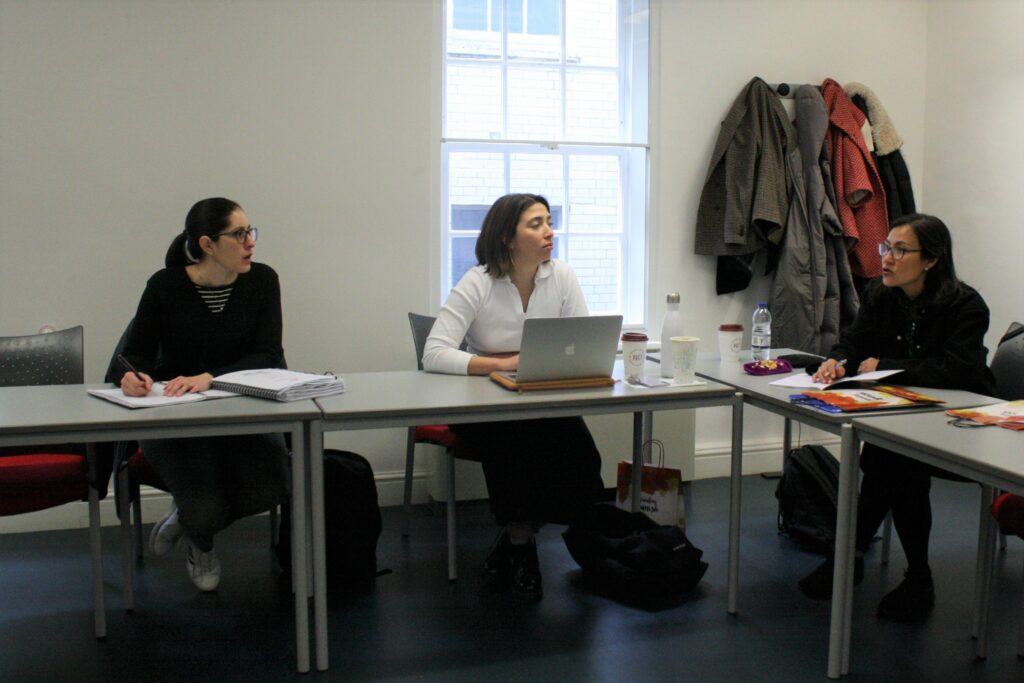
Taking the DADIC was the best decision
Student Milagrosa Villalobos, who is from Seville and has been living in London since 2011, began her journey as a Spanish teacher during the pandemic, when native speakers were needed to help Spanish A Level students prepare for their exams.
“After a few years helping young people learn and improve their Spanish, I decided it was time to formally train. Taking the DADIC was the best decision I could have made. The excellent course instructors have guided me in the right direction on my journey as a Spanish teacher”, explains Villalobos, adding that the course was “great from the start, in relation to both the learning experience and the instructors leading the course”.
A practical course to help develop teaching skills
Instituto Cervantes London has been offering this introductory course in teaching Spanish to adults since October 2019. It is aimed at those with no previous experience or training, and is divided into two modules, which focus on the early development of teaching skills and preparing for the DADIC-A.
Upon completion, teachers no longer require supervision. They are able to make decisions independently in relation to managing the language teaching, learning and assessment process.
Equally, they are well prepared to apply techniques and models learnt during the course and take risks with new approaches in the classroom. They are also able to adapt their teaching style to other contexts and will be able to critically review and improve their performance.
More information about the Preparation course for the DADIC-A
Spain and the Hispanic World at the Royal Academy of Arts
From masterpieces by Goya and Velázquez to dazzling objects from Latin America, explore the art and culture of the Hispanic world in this landmark exhibition.
Discover the rich story of Spanish and Hispanic art and culture from the ancient world to the early 20th century through over 150 fascinating works: from masterpieces by El Greco, Zurbarán, Velázquez and Goya to sculptures, paintings, silk textiles, ceramics, lustreware, silverwork, precious jewellery, maps, drawings, illuminated manuscripts and stunning decorative lacquerware from Latin America.
The exhibition features the famous World Map of 1526 by Giovanni Vespucci, and culminates with Sorolla’s colourful, large-scale study for his monumental series of 14 paintings, Vision of Spain.
Founded in New York in 1904, the Hispanic Society Museum & Library is home to the most extensive collection of Spanish art outside of Spain. Presented for the first time in the UK, it will offer visitors a chance to trace the great diversity of cultures and religions – from Celtic to Islamic, Jewish and Christian – that have shaped and enriched what we today understand as Spanish culture.
21 January — 10 April 2023
Tues–Sun: 10am–6pm
Fri: 10am–9pm
Main Galleries, Burlington House, Royal Academy of Arts
Autumn 2021 Classroom and Online Courses
This autum we’ll offer you both onsite courses for those willing to come back to normality and online courses for those who prefer learning from home in a friendly and supportive environement. Check our Autumn 2021 Classroom & Online Courses now!
Spanish is the most popular A-level language for the second year in a row
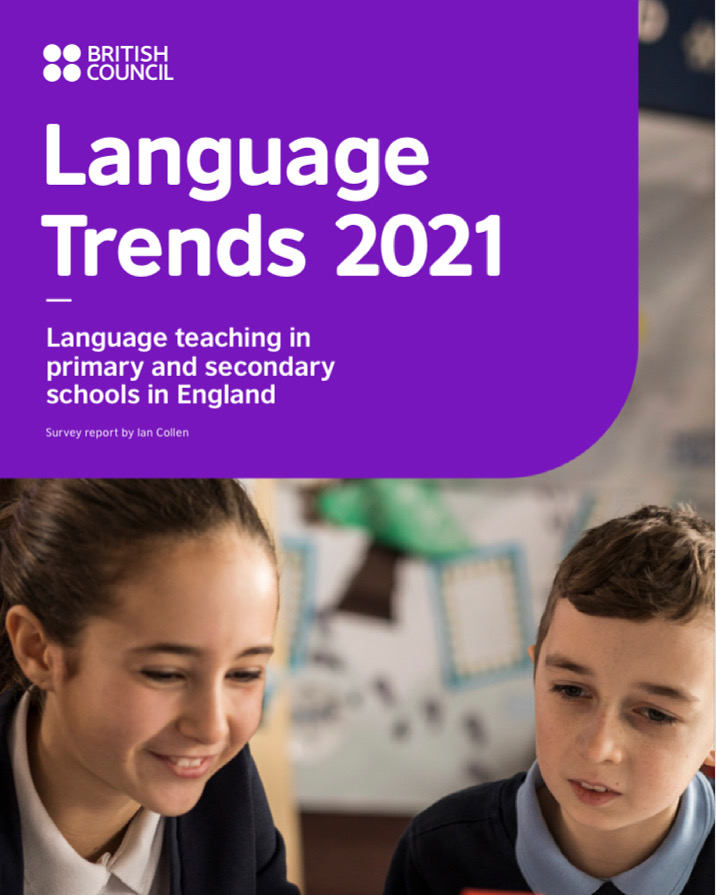
For the first time, Spanish attracted over 100,000 GCSE entries – almost double the 2005 statistic – and was the most popular A-level language for the second year in a row. If current trends continue, the report predicts that Spanish is likely to overtake French as the most popular GCSE language by 2026, according to a new British Council report published today.
The Language Trends 2021 report surveyed teachers at more than 1500 primary, secondary and independent schools across England. The report, which has been published annually by the British Council for nearly twenty years, gathers information about language teaching and learning in England.
At Key Stage 3, Spanish is taught by 74 per cent of responding state schools and 89 per cent of responding independent schools.
To read the full report, please visit: https://www.britishcouncil.org/research-policy-insight/research-reports/language-trends-2021
Spanish course for beginners with trainee teachers
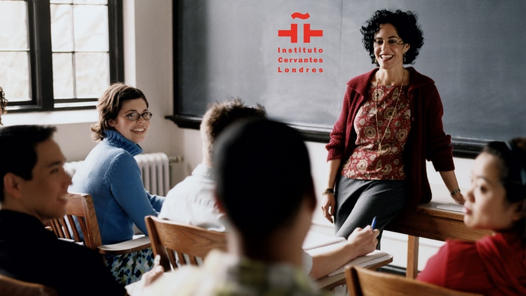
Join our 25h Spanish course for beginners with trainee teachers monitored by our native academic staff.
Cost: £25, to be refunded if the student attends 80% of the sessions.
12 to 23 July, Monday to Friday, 10am to 12:30pm.
Enroll now: cenlon@cervantes.es or calling 020 7201 0750
For more information about our courses, please visit our website.
Centenario del nacimiento del cineasta Luis García Berlanga
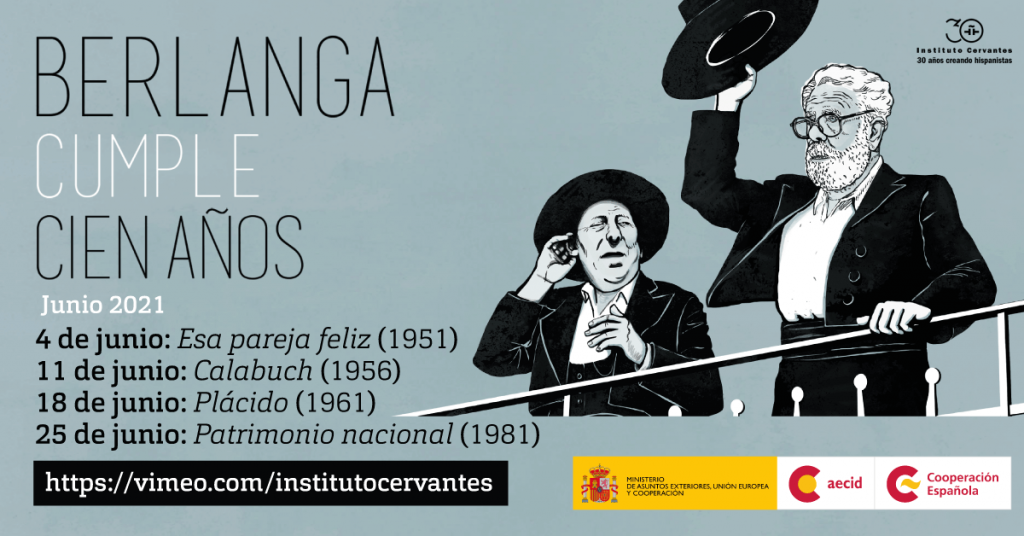
En el marco de la celebración del centenario del nacimiento del gran cineasta valenciano Luis García Berlanga (Valencia, 12 de junio de 1921-Madrid, 13 de noviembre de 2010), el Instituto Cervantes tiene previsto un completo programa de actividades que se inicia con el ciclo de cine en línea «Berlanga cumple cien años» que —en colaboración con la Filmoteca de la AECID, el ICAA y su Filmoteca Española, AC/E y la Academia de Cine— recupera cuatro de sus obras menos conocidas internacionalmente.
Programa completo en https://vimeo.com/showcase/centenarioberlanga, dentro del canal de Vimeo Instituto Cervantes.
![]() 4 de junio: «Esa pareja feliz» (1951), de Luis G. Berlanga y Juan Antonio Bardem https://vimeo.com/institutocervantes/esaparejafeliz
4 de junio: «Esa pareja feliz» (1951), de Luis G. Berlanga y Juan Antonio Bardem https://vimeo.com/institutocervantes/esaparejafeliz![]() 11 de junio: «Calabuch» (1956), de Luis G. Berlanga https://vimeo.com/institutocervantes/calabuch
11 de junio: «Calabuch» (1956), de Luis G. Berlanga https://vimeo.com/institutocervantes/calabuch![]() 18 de junio: «Plácido» (1961), de Luis G. Berlanga https://vimeo.com/institutocervantes/placido
18 de junio: «Plácido» (1961), de Luis G. Berlanga https://vimeo.com/institutocervantes/placido![]() 25 de junio: «Patrimonio nacional» (1981), de Luis G. Berlanga https://vimeo.com/institutocervantes/patrimonionacional
25 de junio: «Patrimonio nacional» (1981), de Luis G. Berlanga https://vimeo.com/institutocervantes/patrimonionacional
LA ESPAÑOLA: Riveting Writing from Spain with Alice Banks. May: Contemporary Fiction
The end of April was a very exciting time for Spanish-language literature, with Granta naming their ‘best of young Spanish-language novelists’, each published in English translation in their latest issue: Granta 155: Best of Young Spanish-Language Novelists 2. This issue – the second of its kind – brings together twenty-five of the best young voices from thirteen different Spanish speaking countries. I’m keen to get my hands on a copy and see whether Granta has discovered any new literary gems! This announcement got me thinking: who would be on my current ‘best-of’ list? Who are the contemporary Spanish writers that I’m reading and enjoying at the moment?
Read more at the European Literature Network’s website
SPANISH IN SPAIN: A DIGITAL EVENT TO PROMOTE SPANISH TO THE WORLD
From the Federation of Spanish Schools as a Foreign Language in Spain we want to promote the Spanish as a foreign language teaching sector in Spain as a valuable bet both economically and educationally.
To do so, we have developed a digital event to show what Spain is, what it can offer you and, in addition, you can have access to some training pills developed by our centers both in didactics (for teachers) and in economy and market (for agents).
Those who participate in this activity will have preference in the upcoming events that FEDELE will be developing in 2022.
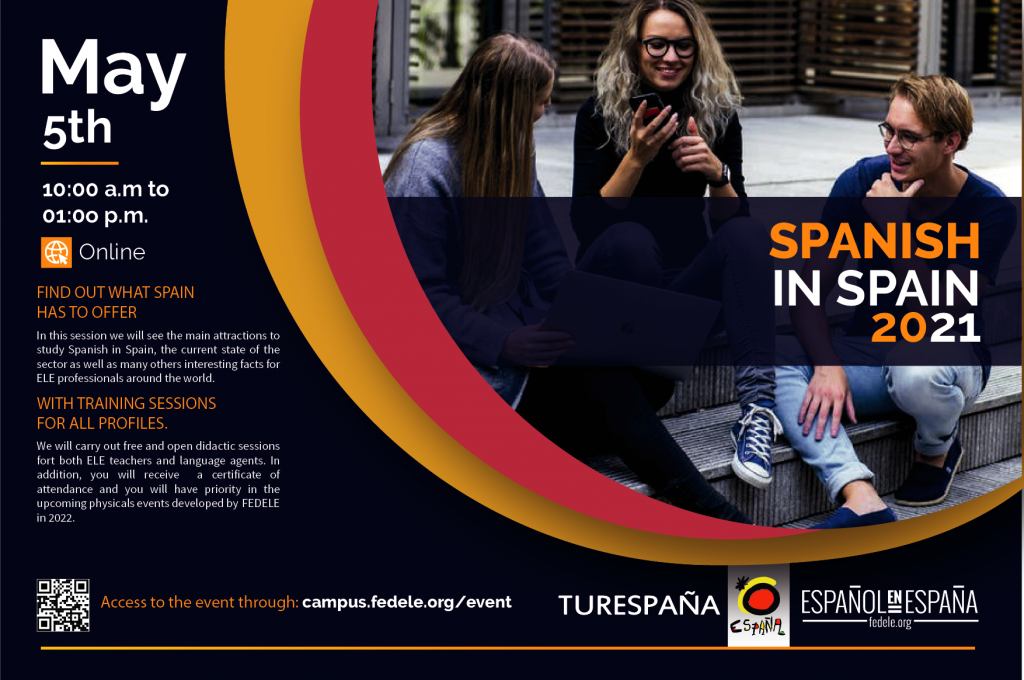
This activity has the collaboration of two organizations concerned with language tourism and language immersion in Spain, FEDELE and TURESPAÑA. The two institutions have developed a specific agenda for a total of five events that are adjusted in schedule and content to each of the countries of the world.
In case of EUROPE, the digital event will take place on 5th May 2021, at 10.00 am – 01:00 pm (Central Europe Time).
Don’t miss the session that will feature interesting presentations to learn more about Spain, Spanish as an economic resource and the facilities to send students to Spanish schools in Spain.
Access the event through: fedele.org/digital-event/
